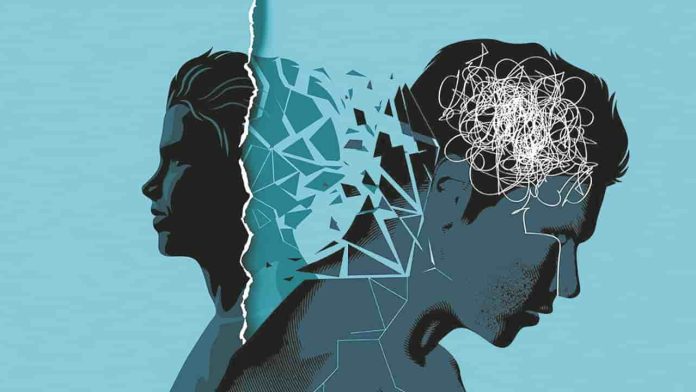A recent judgment of the Calcutta High Court over a divorce petition was noteworthy. It said: “The reason of infertility is not a ground for divorce. There are several options to become parents.” This observation was made while dismissing a revision petition by a husband against criminal proceedings initiated by his wife against him.
The petition sought quashing of a chargesheet and proceedings pending before the judicial magistrate, Sealdah, under Section 498A/406/323/34 of the Indian Penal Code, 1860 and Sections 3/4 of the Dowry Prohibition Act, 1961.
The couple’s marriage was solemnised in 2008 as per Hindu rites and customs. The wife developed various medical conditions and disorders which ushered in primary infertility with premature menopause, rendering her incapable of conceiving. She blamed her husband for this and resumed self-medication at the advice of her family. This led to deterioration of her condition, causing her to be hospitalised and treated at the National Institute of Mental Health and Neuro Sciences, Bangalore.
Unable to endure the persistent mental torment and agony, the husband in June 2017 served a divorce notice to his wife. In retaliation, a month later, the wife lodged a written complaint in Beliaghata police station implicating her husband and his family and the start of criminal proceedings.
A single bench of Justice Shampa Dutt (Paul) noted that the wife developing primary infertility with premature menopause was a great mental shock for a woman who is yet to become a mother. Self medication is a sign of helplessness. In addition, further stress was added with the wife losing her mother (who in such circumstances) is a pillar of strength for a daughter. Her medical papers proved that with vitamin supplements, she improved enough to be discharged. The loss of weight (30 kg over two years) was the result of such trauma. During such times, it is the duty of a spouse to be the strength, remarked the High Court.
The Court further observed: “The reason of infertility is not a ground for divorce. There are several options to become parents. A spouse has to be understanding in these circumstances as it is the other (only) who can help one to regain her/his mental, physical and emotional strength. To be able to face the world, the society in general, bravely together. It could well have been the reverse. If the petitioner/husband had the problem, would he not expect support from his wife to make a better life together.”
The Court underscored that it was extremely insensitive of the husband to ask his wife for a divorce by mutual consent under these circumstances. This amounts to mental cruelty which affected her life and health. “To be fair to the petitioner/husband, maybe it is not everyone’s cup of tea to be strong in such a situation. To be strong in such circumstances requires a very caring heart and also a very good support system, which always is not there. Sometimes, it so happens that only one can help oneself in such situations. A strong and confident person is obviously in a zone which helps a person to cure faster than another person who may not be so lucky. In the present case, the definition of the word ‘cruelty’ takes a different meaning altogether,” held the Court.
Section 498A of the IPC says: Whoever, being the husband or the relative of the husband of a woman, subjects such woman to cruelty shall be punished with imprisonment for a term which may extend to three years and shall also be liable to fine. Explanation.—For the purpose of this section, “cruelty” means—
(a) any willful conduct which is of such a nature as is likely to drive the woman to commit suicide or to cause grave injury or danger to life, limb or health (whether mental or physical) of the woman; or
(b) harassment of the woman where such harassment is with a view to coercing her or any person related to her to meet any unlawful demand for any property or valuable security or is on account of failure by her or any person related to her to meet such demand.
The High Court relied on Rupali Devi vs State of UP where a three-judge bench of the Supreme Court held: “The impact on the mental health of the wife by overt acts on the part of the husband or his relatives; the mental stress and trauma of being driven away from the matrimonial home and her helplessness to go back to the same home for fear of being ill-treated are aspects that cannot be ignored while understanding the meaning of the expression ‘cruelty’ appearing in Section 498A of the Penal Code.” It added that the emotional distress or psychological effect on the wife, if not the physical injury, is bound to continue to traumatise her even after she leaves the matrimonial home and takes shelter at the parental home. It said that psychological distress continue to persist even at the parental home.
Therefore, the High Court refused to quash the criminal proceedings against the husband.
In 2012, a Bombay High Court division bench of Justice AM Khanwilkar and Justice AR Joshi ruled that impotency and infertility are completely distinct terms. Unlike impotency, infertility cannot be grounds for divorce. “… the legislature has not prescribed infertility of a spouse as a ground for annulling the marriage if such spouse is capable of being a party to normal coitus. Although according to some of the dictionaries, the allegation of impotence is attributable only to men, the Hindu Marriage Act has, however, adopted the broader view that even a wife can be impotent if she is unable to be a party to normal coitus.”
In short, empathy is needed within a marriage and the courts have emphasised this time and again.
—By Shivam Sharma and India Legal Bureau


